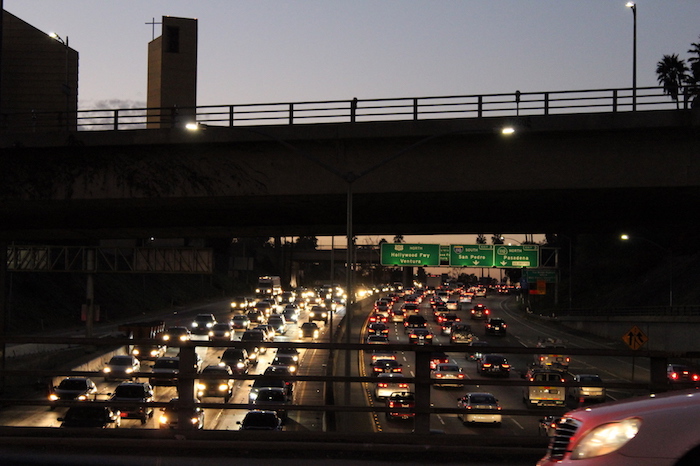
Sunshine, beaches, amazing views.
For some East Coast students, those California offerings are a dream come true. For others, they are California offerings they’ve come to resent.
Coming to California from the East Coast to study was an eye-opening experience for most.
“I’m glad I actually came out to see how it was actually like,” said Luke Fariel, a first-year finance major from Boston, Massachusetts.
Many East Coasters at Pepperdine hail from Boston or New York, yet their experiences differ widely from one another. Some of the major differences they see between the two coasts range from weather, culture, to even the people.

Weather
The difference in weather between the East Coast and the West Coast can be one of the hardest adjustments. In Malibu, the weather ranges from an average 69 degrees in summer to 56 degrees in winter. In New York, temperatures swing from an average high of 76 degrees in summer to an average low of 35 degrees in winter, according to areavibes.com.
Students from the East Coast no longer have to endure the extreme cold anymore, and sunnier weather can improve students’ emotional health quality and development.
“I guess because of the weather, people are more optimistic and laid back,” said Ronald Yung, a first-year business major from Gill, Massachusetts.
Yung said he is a weather-oriented person, meaning that his mood majorly depends on the weather around him. Yung chose California for its nice weather.
Emma Craven, a first-year English and creative writing double major from Brielle, New Jersey, had more trouble adjusting. One thing she dislikes is the bipolar weather in Malibu.
“One minute it’s super cold, and the next I’m dying of heat,” Craven said.

Transportation
Another major difference between the two coasts is transportation. Students from the East Coast tend to struggle with the lack of buses or other public transport in car-dependent California. East Coasters are able to take the bus or train to locations in less time than it takes to drive from Malibu to Santa Monica.
Karina Iturralde, a first-year media production major from Queens, New York said the New York City train system is simple and easy to navigate.
“Back home, no one I know takes Uber or a taxi,” Iturralde said.
Travelling without a car is nearly impossible in California, so students are willing to put in extra effort to be able to drive.
“I actually convinced my dad to drive my car out from New Jersey for Waves Weekend,” Craven said.
Personality
Some students from the East Coast also think that the people of California differ from them personality wise.
“I think the West Coast is more accepting on a surface level, but the East Coast on a much deeper one,” said Christian Treon, a junior international business major from Boston, Massachusetts. “The people seem friendlier out here but it doesn’t mean they are.”
The people of California appear to be less genuine to the East Coasters.
“East Coasters come off as jerks but once they get to know you, they will be loyal friends,” Craven said. “People here come off as the the nicest people but will stab you in the back in order for them to succeed. It’s harsh, but true.”
When Sabrina Canario, a first-year public relations and French studies double major from Montclair, New Jersey, first came to Pepperdine it was everything she dreamed of.
“I remember how badly I wanted to be a ‘Cali’ girl,” Canario said.
She believes that people in California are more accepting than those of the East Coast. Canario compared life on the East Coast to life in the movie “Mean Girls,” because “basically everyone (in the East Coast) has been bullied.”
Ally Arpey, a first-year psychology major who studied in Kent, Connecticut, agreed.
“People on the East Coast are very goal driven to the point where they are very cranky,” Arpey said.
Appearance is a main concern for a big group of people in the West Coast.
“There is a strong contingent of people who care about style,” Sociology Professor Bryant Crubaugh said. “Some students who are not from California or the West Coast might struggle with that.”
Culture
Many students who come from the East Coast said Los Angeles has a very different culture compared to their cities.
“LA is not a city, I don’t care what anyone says,” Canario said.
Students see the West Coast culture as less formal.
“The more progressive culture (in the West Coast) enables more alternative lifestyles,” Crubaugh said.
He said the West Coast has a tradition of freedom and experimentation.
With hundreds of years of history embedded in the New England area, students see the East Coast as more reserved and traditional. California seems trendy and forward, with Los Angeles’ reputation of being the entertainment capital.
“It is easy to be fake and to portray yourself in a certain way just to gain positive attention,” said Natalie Rulon, a first-year integrated marketing communication major from Anna Maria Island, Florida.
Students’ desire to be popular could become an obstacle for authenticity.
“I think California tries to project itself as different,” Crubaugh said. “(The people of California) want to present the state as a perfect place where everybody wants to live.
Transitioning
Crossing the country to study is hard, but students from the East Coast said they have learned to adjust.
“You are forced to become independent here,” Yung said.
Being homesick can be a big problem for students from the East Coast, especially in their first year.
“I think about home every single day, 10 times a day,” Fariel said.
Ben Chiang completed this story under the supervision of Dr. Christina Littlefield in Jour 241 in spring 2017.



